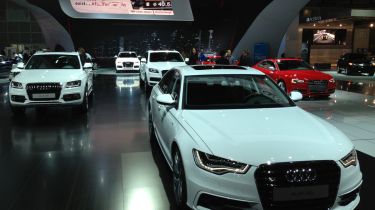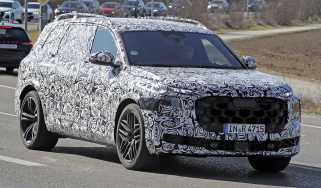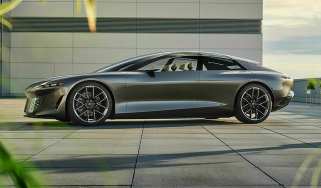Blog: Does diesel do it for the US?
Our web reporter, Tom Phillips, on the arrival of ‘CleanDiesel’ in the US
From a European point of view, it’s hard to think of diesel-engined cars as new or novel. But in the US, diesel cars are only just beginning to make an impression, as more carmakers add oil burners to their lineups.
And that’s because, by 2025, all carmakers have to adhere to new federal fuel efficiency standards that require a 54.5mpg (65.5 UK mpg) average across their respective ranges.
Audi already sells the A3 2.0 TDI and Q7 3.0 TDI in the US, but the firm is using the LA Motor Show to introduce 3.0 TDI ‘CleanDiesel’ versions of its Q5, A6, A7 and A8 models to the US market by the end of 2013, with the A4 set to follow.
It’s also kicked off a #fuelforthought Twitter hashtag, so showgoers can tell the world what they think of the German firm’s diesel domination plans, with the best Tweets projected on a giant screen on its show stand.
Prices for Audi’s forthcoming diesels are yet to be announced, but the MSRP of the Q7 diesel is $52,000 - $5,200 more than the equivalent petrol, while in the UK, the 3.0-litre diesel is £2,605 cheaper than the petrol.
It’s the same story for the US VW Passat. The 2.5 TDI costs $26,225 - $2,285 more than the petrol, while 2.0 TDI UK Passats also undercut their 2.0 TSI petrol counterparts.
Diesel is in its relative infancy in the US, but sales have climbed 25.6 per cent in 2012, and that’s only set to grow with the new Mazda 6, Chevrolet Cruze and a number of BMW and Mercedes models all set to get diesel variants in the US in the next two years.
Diesel car prices will likely fall, too, as will the cost of the fuel, which is predicted to fall three per cent per gallon in 2013 to around $3.83.
But, having spent the last few days in LA, it’s clear that the US appetite for huge cars with large capacity petrol engines that drive lots of freeway miles remains.
Providing that carmakers like Audi can persuade buyers to try their latest quiet CleanDiesel models, the switch to oil burners means that, for many, their driving experience won’t change. They’ll just use a lot less fuel.
Find a car with the experts







